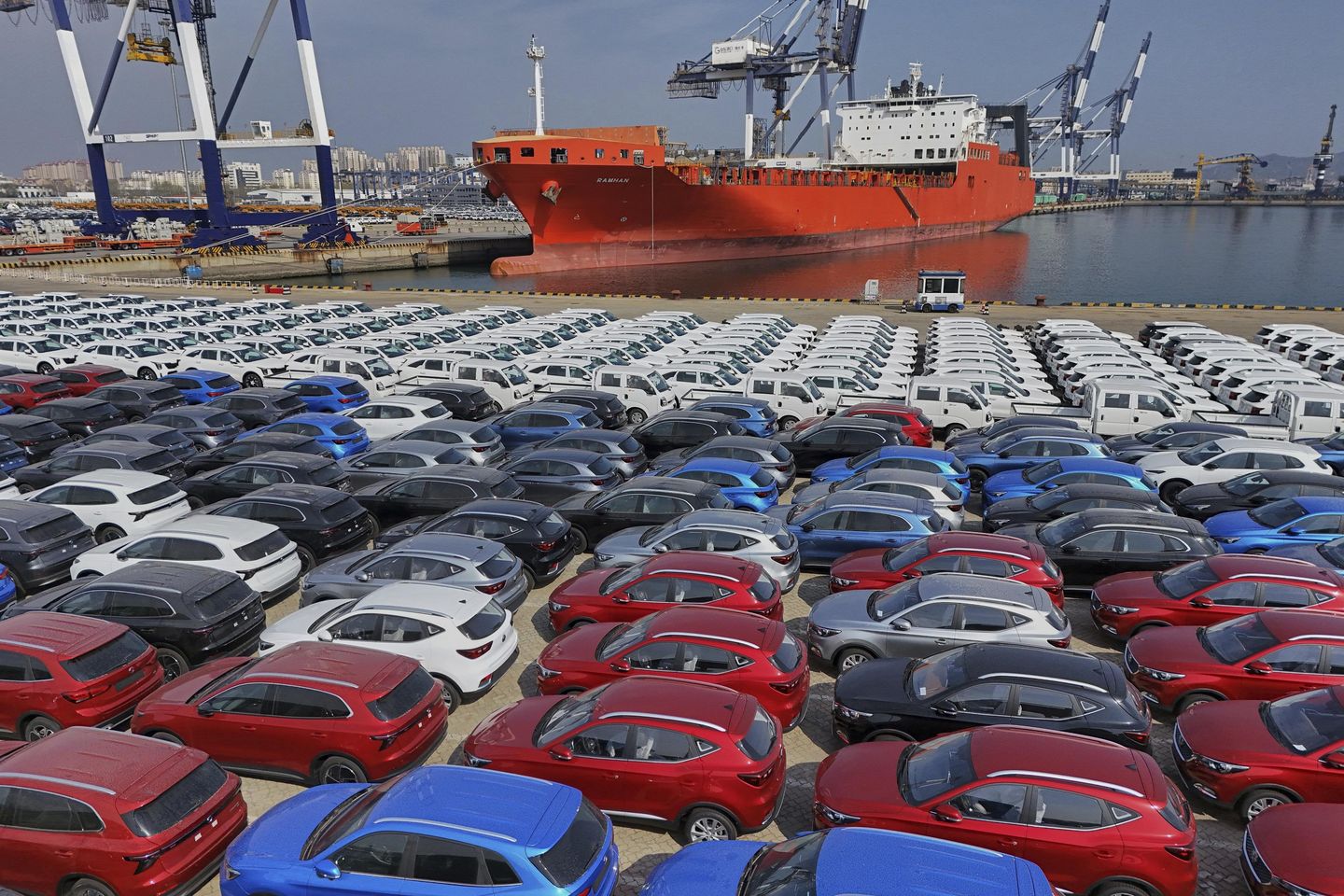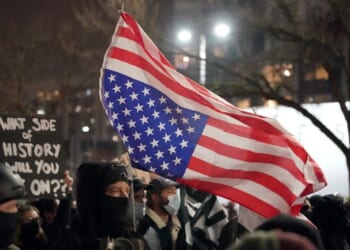
China added a 34% tariff on U.S. goods, and markets plummeted again Friday, but Vietnam had a “very productive call” with President Trump about lowering its trade barriers as the second-day fallout from his global trade crackdown unfolded.
Mr. Trump, after speaking to Communist Party General Secretary Tam Lo, said Vietnam is willing to cut its tariffs to “ZERO” if the two countries can reach an agreement.
“I thanked him on behalf of our Country, and said I look forward to a meeting in the near future,” Mr. Trump wrote on Truth Social.
China took a harder line, retaliating Friday with an additional 34% tariff in response to Mr. Trump’s decision to impose a 34% reciprocal tariff on top of the 20% levy he imposed on Chinese goods earlier this year.
“The U.S. practice is inconsistent with international trade rules, seriously undermines China’s legitimate rights and interests, and is a typical unilateral bullying practice that not only undermines the interests of the United States itself, but also endangers global economic development and the stability of the production and supply chain,” the Finance Ministry in Beijing said.
Mr. Trump at midweek imposed a baseline 10% tariff on all imports and heftier levies on select nations, saying the U.S. has been taken advantage of by countries that tap into U.S. spending power, only to shut their markets to American producers.
SEE ALSO: The pushback begins: China imposes 34% tariff on U.S. goods
While Vietnam tried to play ball, Beijing’s decision is a direct sign of the kind of tit-for-tat nations might engage in as the world responds to Mr. Trump’s trade actions. Chinese officials said goods that leave the port by April 10 and are imported by May 13 will not be subject to the additional tariffs.
Meanwhile, Wall Street is crashing. The Dow Jones Industrial Average closed down over 2,200 points, or 5.5%, on Friday while the S&P 500 and Nasdaq each dropped over 5%.
Tariffs are a tax or duty paid by importers on the goods they bring in from foreign markets. Mr. Trump says tariffs are a great way to force companies to return to America or keep their operations in the U.S., employ American workers and create revenue to fund domestic programs.
Foreign countries don’t pay the tariffs directly to the U.S. Treasury. In many cases, U.S. companies will pay the levies, and they might pass on at least some of the cost to consumers through higher prices.
The White House said Mr. Trump’s tactics are paying dividends. Japanese automaker Nissan says it will maintain two shifts at its plant in Smyrna, Tennessee, instead of going with one shift.
General Motors said it would increase truck production at a plant in Indiana, and Ford and Stellantis are offering cars at the discounted price the automakers offer their employees.
The president’s phone call with Mr. Lam indicated some nations were willing to reconsider trade barriers — and that Mr. Trump was ready to negotiate, too.
Vietnam was among the hardest-hit countries on Mr. Trump’s naughty list of countries with high trade barriers. It faces a 46% tariff under Mr. Trump’s plan compared with a baseline tariff of 10% for most nations.
It’s a bitter pill for companies that tried to decouple from China and move to Southeast Asian alternatives such as Vietnam or Cambodia, which faces an even stiffer tariff of 49% under Mr. Trump’s plan.
“The reciprocal tariffs were calculated to offset the trade deficit with each country, which explains why countries like Vietnam and Cambodia were hit by hefty tariffs,” said Maggie Switek, an economist and senior director of research at the nonpartisan Milken Institute.
Companies must reexamine their supply chains and costs if global leaders can’t strike a deal over trade barriers.
Amid the Wall Street crash Friday, Nike, which relies on Vietnamese production, saw its stock rise after news about the positive call.
The White House is sending mixed signals about the permanence of its tariff policy.
Mr. Trump on Friday told companies moving operations into the U.S. that his policies will “never change.”
At the same time, he’s said the U.S. is in the “driver’s seat,” suggesting the tariff plan is the opening move in a race to recalibrate trade in favor of U.S. producers.
“If we would have asked these countries to do us a favor, they would have said no,” Mr. Trump told reporters late Thursday. “Now, they will do anything for us.”
Mr. Trump has compared the economy to a “sick patient” that had to undergo an operation — namely, his trade restructuring — and will grow healthier. He pointed to a positive jobs report in which U.S. employers added 228,000 jobs in March, defying gloomy forecasts.
“The economy is still in a good place,” Fed Chairman Jerome Powell said.
However, he said larger-than-expected tariffs are going to move through the economy and likely fuel inflation.
Senate Minority Leader Charles E. Schumer, New York Democrat, said, “Donald Trump made one of the dumbest decisions he’s ever made as president, and that’s saying a lot. Instead of fixing inflation, which he promised to do, Donald Trump unleashed a wave of tariffs that will make inflation much worse.”
The National Retail Federation and other industries say the tariffs will hurt U.S. communities and businesses.
“Tariffs are a tax paid by the U.S. importer that will be passed along to the end consumer. Tariffs will not be paid by foreign countries or suppliers,” said David French, executive vice president of government relations at NRF. “Even more so, the immediate implementation of these tariffs is a massive undertaking and requires both advance notice and substantial preparation by the millions of U.S. businesses that will be directly impacted.”
Former Goldman Sachs CEO Lloyd Blankfein urged Mr. Trump to take a Solomonic approach by delaying the reciprocal tariffs on select nations while keeping the baseline 10% tariff on all nations.
Mr. Blankfein, writing on X, said the White House switchboard “must be burning up” with governments willing to surrender in the emerging trade war.
“Why not give them a chance?” he wrote. “Make the 10pct min tariff immediate but defer the ’reciprocal’ part 6 mos. Take the win!”








